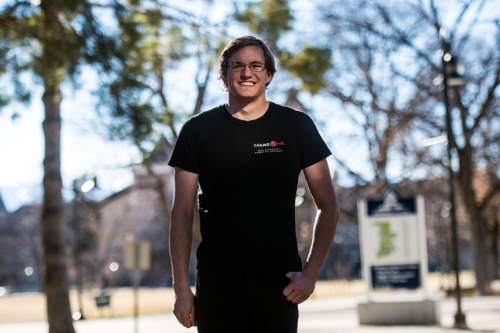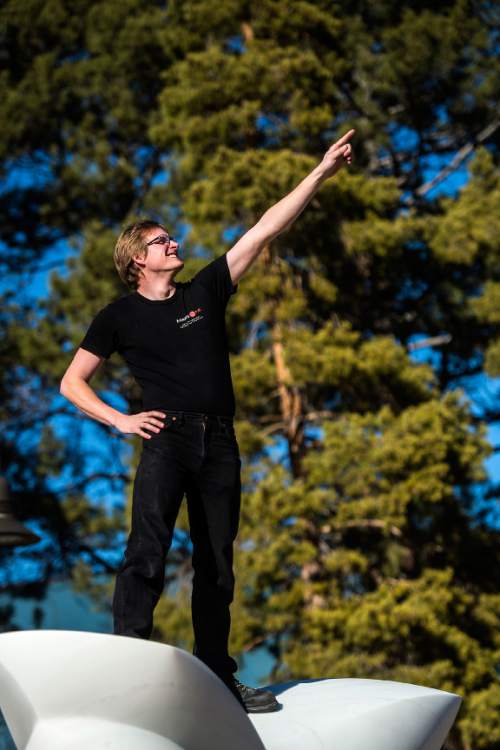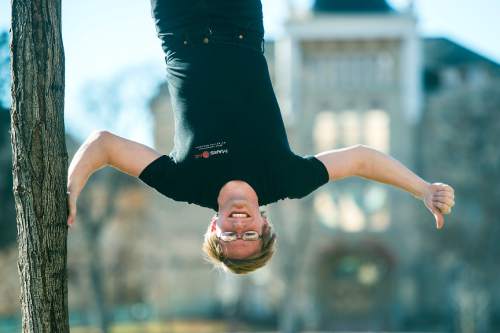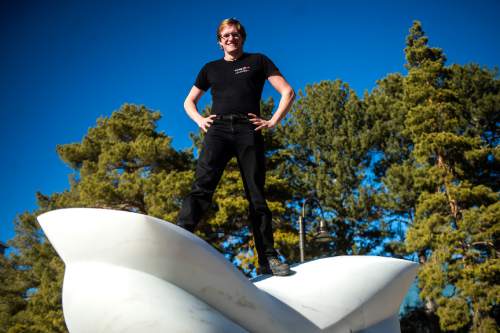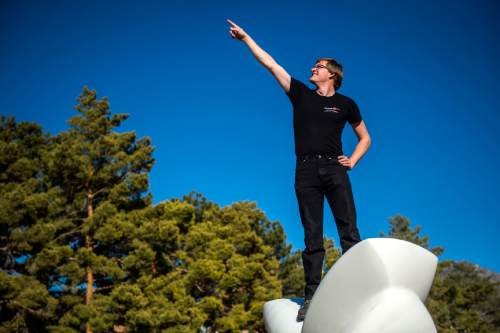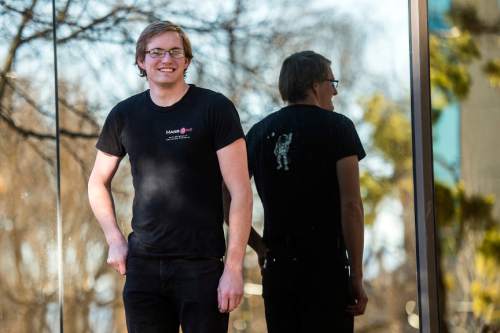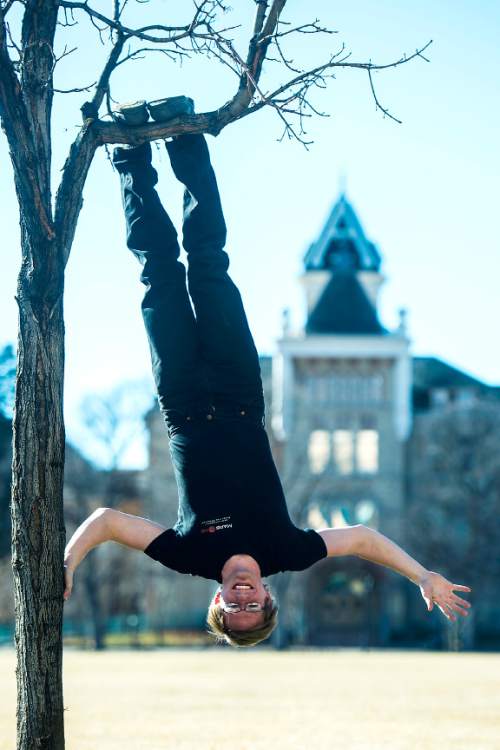This is an archived article that was published on sltrib.com in 2015, and information in the article may be outdated. It is provided only for personal research purposes and may not be reprinted.
Cody Reeder figures if he ever steps off a shuttle to Mars, he'll feel at home.
The 22-year-old Utah State University student is one step closer to jetting off to the red planet this week after a nonprofit whittled its selection of would-be colonizers to 100.
Cody Reeder, a junior geology major and beekeeper, figures the desolate landscape will remind him of his family's west desert ranch.
He is one of 50 men and 50 women angling to colonize the fourth rock from the sun. Dutch nonprofit Mars One eventually will choose two dozen space pioneers, executives say, and send them off to settle the planet.
Reeder says he understands that if he makes the final cut, he is unlikely to return to Earth.
"I still think it would be worth it," Reeder said Tuesday afternoon from Logan. "The colonists that colonized America, they never had a return mission plan. Here we are 400 years later and we're one of the most powerful countries in the world."
Mars One organizers expect to launch their first unmanned mission to Mars in 2018, then send four-member crews every two years. If all goes according to plan, the final colony will number about two dozen — out of an initial pool of 202,500 applicants worldwide.
"These aspiring Martians provide the world with a glimpse into who the modern-day explorers will be," Mars One CEO and co-founder Bas Lansdorp said Monday in a prepared statement.
Reeder, who grew up in the Stansbury Mountains about 10 miles west of Grantsville, filled out an application in 2013 at the suggestion of a roommate.
His YouTube video pitch shows him hanging upside down while keeping bees and lighting the contents of a beaker.
Even if the Mars One project fails to launch its mission, "somebody will," Reeder said. "It's totally possible."
Not everyone is on board. Reeder said his dad wonders whether anyone will take over the family ranch.
But he stands by his decision, saying it would "benefit all of mankind." Staying on Earth, he believes, "is kind of the more selfish thing to do."
Reeder insists he could benefit the crew with mechanical know-how. He can fix "everything from a Weed Eater to a diesel locomotive" and make his own drinking water, electricity and food. He also says he keeps a level head, even when he drops an entire flat of bees by accident.
His sister Melany Reeder, a 20-year-old USU student, said her brother has planned to visit Mars since childhood, when he replicated weightlessness by riding roller coasters and jumping on the trampoline with a glass of water in hand.
The thought of saying goodbye to him forever "is hard on me," she said. At the same time, "We're all gonna die eventually, so I can't imagine a better way for my brother to go."
Canyon Neal, Reeder's girlfriend and an 18-year-old veterinary science major at USU, said she's "a little sad. But it's what he wants to do." The pair has dated since last fall.
"I mean, he's ditching me to go to Mars," Neal joked. "Isn't that kind of rude?"
Before this week's cut, 660 candidates answered online interview questions from Mars One's chief medical officer, Norbert Kraft.
Another Utah candidate, Ken Sullivan, a 39-year-old father of four, has been eliminated. He could not be reached for comment Tuesday.
To make the next round, applicants will have to prove their survival and teamwork skills.
No human has made it to Mars yet, but Mars One executives are aiming to "establish permanent human life" on a planet that is nearly 10 times smaller than Earth.
The trip is one-way-only. That's because there is no feasible way to launch a ship from Mars, Kraft has said, and because Martian gravity would significantly reduce a person's bone density.
The initial trip would last six to seven months and the first crew would have only four people. Following trips would depart every two years because that's when Earth and Mars are at their closest points, which cuts travel time.aknox@sltrib.com
Twitter: @anniebknox


